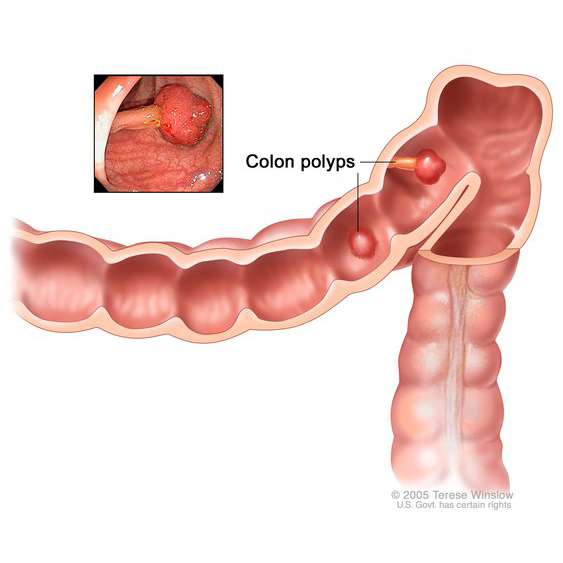03 Feb 2026
Rhinoplasty Revision Surgery in Mohali: Cost When Your First Nose Job Fails

.jpeg)
Dr. Mukesh Chawla
04 Jul 2025
Call +91 80788 80788 to request an appointment.
Polypectomy is a key procedure in oncology, particularly for the treatment and prevention of colon cancer. As a minimally invasive surgical technique, it involves the removal of polyps from the lining of the colon during a colonoscopy. At Livasa Hospital in Delhi, we specialize in advanced cancer care, providing comprehensive treatment options for colon cancer including polypectomy. In this guide, we will delve into the polypectomy procedure, its importance, and what you can expect during and after the treatment.
Colon polyps are growths on the lining of the colon that may vary in size and shape. While most polyps are benign (non-cancerous), some can develop into colorectal cancer over time. Understanding the types and characteristics of these polyps is crucial:
Regular screening for colon polyps is important, particularly for those at increased risk, as early detection and removal can significantly reduce the risk of colorectal cancer. According to statistics, colorectal cancer is the third most common cancer worldwide, with approximately 1.9 million new cases reported in 2020, emphasizing the importance of early intervention.

Polypectomy plays a crucial role in both the treatment and prevention of colon cancer. Early detection of polyps through routine screening, such as colonoscopy, is key to preventing cancer from developing. When polyps are found during a colonoscopy, polypectomy allows for their immediate removal, which can significantly decrease the risk of colorectal cancer.
At Livasa Hospital, we employ cutting-edge technology and methods for polypectomy, ensuring minimal discomfort and maximal efficiency. Here are several points highlighting the significance of this procedure:
Many patients are concerned about the procedures for removing polyps, as they want to ensure they are receiving the best cancer treatment in Delhi. With our expert oncologists and supportive care services, we assure our patients that their health is in good hands.
Understanding the polypectomy process can help alleviate any anxieties associated with the procedure. Here’s a step-by-step breakdown of what you can expect when you come to Livasa Hospital for a polypectomy:
The entire polypectomy process typically lasts between 30 minutes to 1 hour, making it a relatively quick intervention with minimal downtime required afterward.
After undergoing a polypectomy, it’s important to follow specific aftercare tips to ensure smooth recovery and optimal results. Here are some post-procedure guidelines to consider:
At Livasa Hospital, we focus on providing comprehensive cancer support services to help you navigate your recovery process effectively. Counseling and support groups are available for patients and their families to help cope with any emotional burden associated with cancer treatments.
Understanding the polypectomy procedure can raise several questions. Here are some frequently asked questions that may help clarify common concerns:
Although polypectomy is generally safe, like all medical procedures, it does carry some risks. Potential complications may include bleeding, perforation of the colon, and adverse reactions to sedation. However, serious complications are rare, especially when performed at reputable facilities like Livasa Hospital.
Your doctor may recommend a polypectomy if polyps are discovered during a routine colonoscopy or if you have a history of colon polyps or inflammatory bowel disease that increases your cancer risk. Regular screenings are crucial for early detection.
General recommendations suggest starting screening at age 45, or earlier for those with a family history of colon cancer or other risk factors. Individuals detected with polyps may require more frequent screenings based on their specific condition.
For an in-depth consultation on colon cancer treatment and polypectomy, you can contact us at Livasa Hospital—your trusted oncology hospital in Delhi.
Early detection and removal of colon polyps through procedures like polypectomy are essential in mitigating the risk of colorectal cancer. Prioritizing regular screenings and being informed about your health can lead to dramatically better outcomes.
At Livasa Hospital, we are committed to providing the best oncology care in Delhi, supporting our patients every step of the way in their healthcare journey. Our team of top oncology specialists is dedicated to offering personalized care tailored to each patient’s needs. For inquiries or to schedule an appointment, feel free to reach us at our dedicated phone line or through our website.
This article was written by healthcare professionals at Livasa Hospital, sharing insights based on professional experience in the field.
Rhinoplasty Revision Surgery in Mohali: Cost When Your First Nose Job Fails
Plastic Surgery After Massive Weight Loss: Body Contouring Packages in Mohali
ENT + Cosmetic in Mohali: Septoplasty for Breathing with Cosmetic Rhinoplasty Offers
Livasa Healthcare Group Corporate Office,Phase-8, Industrial Area, Sector 73, Sahibzada Ajit Singh Nagar, Punjab 160071
| Mohali | +91-99888 23456 |
| Amritsar | +91-99887 49494 |
| Hoshiarpur | +91-99883 35353 |
| Nawanshahr | +91-75081 82337 |
| Khanna | +91-98888 05394 |